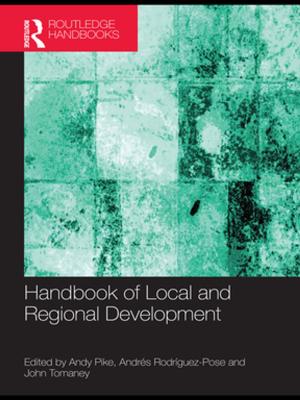Democracy and the Organization of Political Parties
Volume 1
Nonfiction, Social & Cultural Studies, Political Science, Government, Political Parties, Social Science, Sociology| Author: | Moisei Ostrogorski | ISBN: | 9781351522939 |
| Publisher: | Taylor and Francis | Publication: | February 6, 2018 |
| Imprint: | Routledge | Language: | English |
| Author: | Moisei Ostrogorski |
| ISBN: | 9781351522939 |
| Publisher: | Taylor and Francis |
| Publication: | February 6, 2018 |
| Imprint: | Routledge |
| Language: | English |
Democracy and the Organization of Political Parties, originally published in 1902, represented the first serious attempt to analyze the consequences of democratic suffrage by a comparative analysis of political systems. As such, Ostrogorski's two-volume study of the party system in Britain and the United States exerted profound influence on the subsequent writings of Max Weber and Robert Michels. A descriptive analyst of the party system in these two countries, Ostrogorski developed concepts and methods that an-ticipated by nearly half a century those later used by American and British political scientists.
The core of Ostrogorski's analysis is a detailed history of the rise of and changes within the party system in Britain and the United States, the first nations to introduce mass suffrage. While the emphasis of Democracy and the Organization of Political Parties is on the similar trends in the political parties of both countries, Ostrogorski also showed concern with the sources of differences between them. Seeking to explain these variations, he suggested a number of fundamental hypotheses about these two societies that con-tinue to be of relevance today. Lipset's substantial introduction places Os-trogorski's work within its historical context and assesses Ostrogorski's im-pact and influence on both his contemporaries and on later political scien-tists.
Democracy and the Organization of Political Parties, originally published in 1902, represented the first serious attempt to analyze the consequences of democratic suffrage by a comparative analysis of political systems. As such, Ostrogorski's two-volume study of the party system in Britain and the United States exerted profound influence on the subsequent writings of Max Weber and Robert Michels. A descriptive analyst of the party system in these two countries, Ostrogorski developed concepts and methods that an-ticipated by nearly half a century those later used by American and British political scientists.
The core of Ostrogorski's analysis is a detailed history of the rise of and changes within the party system in Britain and the United States, the first nations to introduce mass suffrage. While the emphasis of Democracy and the Organization of Political Parties is on the similar trends in the political parties of both countries, Ostrogorski also showed concern with the sources of differences between them. Seeking to explain these variations, he suggested a number of fundamental hypotheses about these two societies that con-tinue to be of relevance today. Lipset's substantial introduction places Os-trogorski's work within its historical context and assesses Ostrogorski's im-pact and influence on both his contemporaries and on later political scien-tists.















